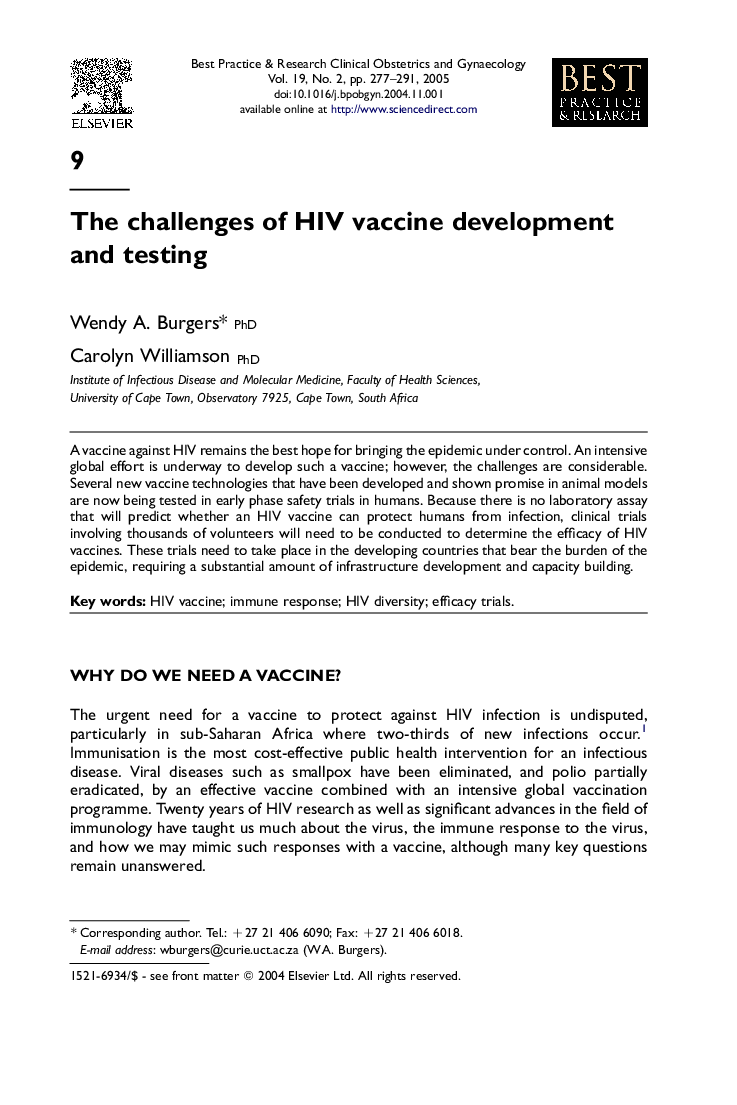| Article ID | Journal | Published Year | Pages | File Type |
|---|---|---|---|---|
| 9315706 | Best Practice & Research Clinical Obstetrics & Gynaecology | 2005 | 15 Pages |
Abstract
A vaccine against HIV remains the best hope for bringing the epidemic under control. An intensive global effort is underway to develop such a vaccine; however, the challenges are considerable. Several new vaccine technologies that have been developed and shown promise in animal models are now being tested in early phase safety trials in humans. Because there is no laboratory assay that will predict whether an HIV vaccine can protect humans from infection, clinical trials involving thousands of volunteers will need to be conducted to determine the efficacy of HIV vaccines. These trials need to take place in the developing countries that bear the burden of the epidemic, requiring a substantial amount of infrastructure development and capacity building.
Related Topics
Health Sciences
Medicine and Dentistry
Obstetrics, Gynecology and Women's Health
Authors
Wendy A. PhD, Carolyn PhD,
